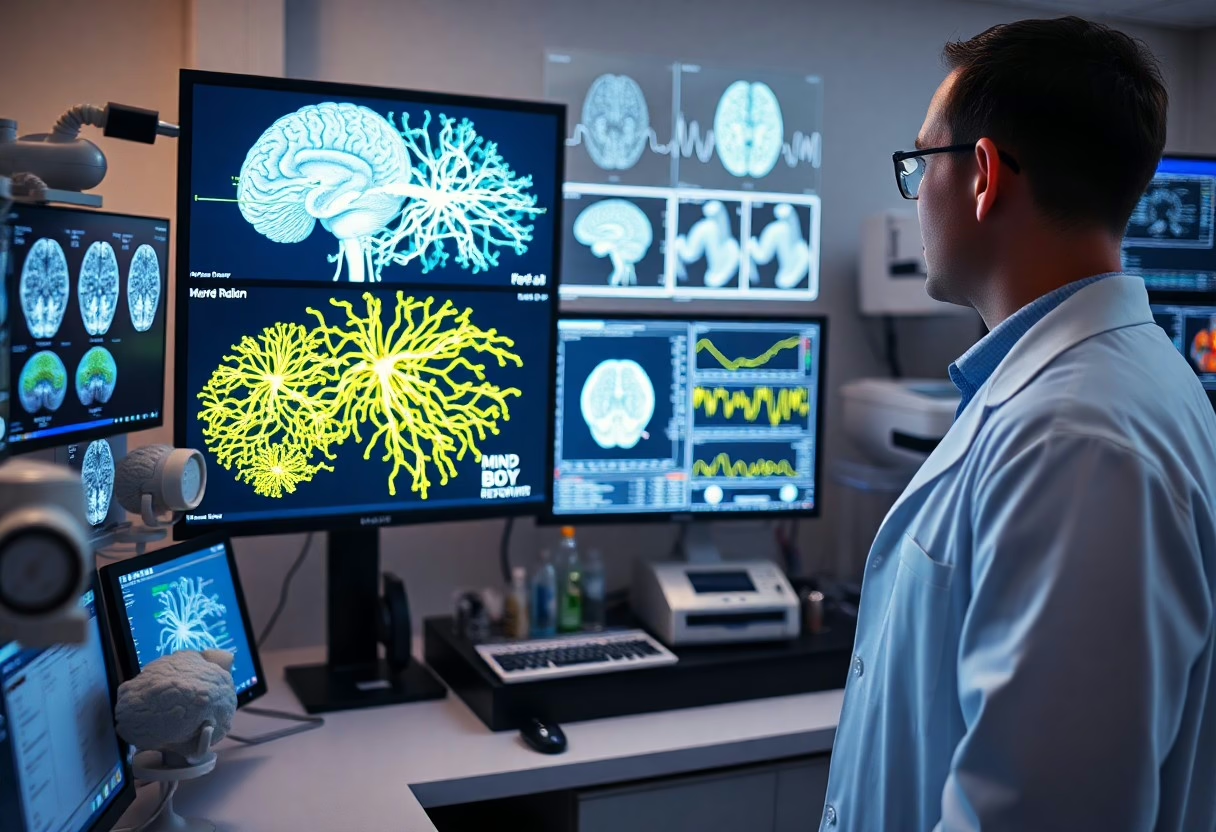You might not realize the profound impact that your thoughts and emotions have on your physical health. By understanding the mind-body connection, you can harness this relationship to enhance your overall well-being. This exploration will reveal practical techniques that empower you to take control of your wellness journey, fostering resilience and harmony between your mental and physical states.

The Neurological Link Between Mind and Body
Your brain and body are interconnected through a complex network of neurons and pathways. This neurological link explains how mental states can influence physical health and vice versa. Stress can trigger hormonal responses that lead to inflammation and health issues, while positive emotions can enhance immune function and overall well-being. Understanding this connection allows you to harness mental strategies to promote physical healing and resilience. Neurotransmitters serve as chemical messengers in your brain, directly affecting mood, motivation, and physical health. Serotonin is the “feel-good” neurotransmitter contributing to happiness and well-being, while elevated cortisol levels can lead to anxiety and various health problems. Balancing these neurotransmitters plays a significant role in achieving optimal mind-body health. The gut-brain axis is a bidirectional communication system between your gastrointestinal tract and central nervous system, influencing both mental and physical health. This connection underscores how gut health directly impacts mood and cognitive function. Studies show that the gut microbiome can produce neurotransmitters like serotonin, demonstrating how digestive health affects emotional well-being. Individuals with gastrointestinal disorders often experience higher levels of anxiety and depression. Maintaining a balanced microbiome through high-fiber diets, probiotics, and reducing processed foods supports both digestive and mental health.
Emotional Intelligence: The Bridge to Physiological Health
Emotional intelligence serves as a vital link between your mental and physical well-being. By becoming more attuned to your emotions and understanding their influence on your body, you can promote overall health. This connection reveals how managing emotional responses improves both mental state and physiological health. Recognizing emotional triggers involves reflecting on situations or interactions that provoke strong feelings. By journaling reactions and analyzing patterns, you can pinpoint specific circumstances, such as stressful work environments or relational conflicts, that cause emotional upheaval. Understanding these triggers allows you to navigate your emotional landscape more effectively. Building emotional resilience significantly improves physiological health. Engaging in mindfulness practices, such as meditation or deep-breathing exercises, promotes calm that mitigates stress. Seeking social support strengthens relationships, providing buffers against emotional distress. Adopting a growth mindset helps you view challenges as learning opportunities rather than threats. Studies suggest that individuals who regularly engage in mindfulness report 30% decreases in perceived stress and increases in overall life satisfaction.
The Power of Mindfulness in Everyday Life
Integrating mindfulness into daily routines enhances your capacity to engage fully with the present moment, promoting emotional balance and physical well-being. This practice grounds you in awareness, allowing you to observe thoughts and feelings without judgment. Over time, cultivating mindfulness leads to reduced anxiety and increased life satisfaction. Explore techniques such as mindful breathing, body scans, and guided imagery to deepen mindfulness practice. Set aside minutes each day for focused breathing, noticing inhales and exhales. Body scans help connect you to physical sensations, while guided imagery enables visualization of calming scenes, promoting relaxation and mental clarity. Applying mindfulness techniques in real-life situations significantly mitigates stress. Practice mindfulness during daily activities like eating or walking by paying close attention to sensations and experiences. This focus shifts awareness from stressors and encourages calmer mindsets. Brief mindfulness exercises before challenging tasks help center thoughts, improving your ability to cope effectively with stress.
Integrative Approaches to Holistic Wellness
Integrative approaches to holistic wellness combine various therapies and practices to create comprehensive health plans addressing physical, emotional, and spiritual well-being. This multifaceted strategy allows you to tap into different modalities’ strengths, ultimately leading to improved overall health. Utilizing techniques such as mindfulness, nutritional therapy, and physical exercise, you can tailor your wellness journey to align with unique needs and goals. Blending traditional medicine with alternative therapies enhances your healing experience, allowing more robust wellness approaches. Utilizing acupuncture alongside conventional treatments helps manage pain effectively, while integrating herbal supplements with prescribed medications might support better immune function. Personalized wellness plans are crucial for achieving long-term health and vitality. By assessing specific conditions, lifestyle, and preferences, you can develop tailored strategies that resonate with individual circumstances. Research indicates that customized approaches lead to higher satisfaction and better outcomes—participants in wellness programs who set individual goals report 30% increases in adherence.
Fitness and Mental Clarity: More Than Just Exercise
Engaging in regular physical activity elevates not only your body but also your mind, creating synergistic relationships that enhance overall wellness. Exercise sharpens focus, improves mood, and boosts cognitive abilities, making it indispensable for holistic health approaches. Research consistently demonstrates that physical activity promotes neuroplasticity, necessary for learning and memory. Activities that elevate heart rate increase blood flow to your brain, delivering oxygen and nutrients vital for sustaining mental performance. Studies show regular aerobic exercise leads to significant increases in hippocampal volume, positively impacting memory and spatial navigation skills. Creating personalized workout routines that cater to mental health needs makes fitness powerful tools for enhancing cognitive clarity. Incorporating activities you enjoy leads to better adherence and consistent practice. A mix of cardiovascular exercises, strength training, and mindfulness practices such as yoga not only elevates mood but also improves focus and reduces stress. Research suggests that activities like dance or martial arts, which require mental focus and coordination, can amplify cognitive benefits while keeping workouts engaging.
To wrap up
Embracing the mind-body connection is essential for achieving lasting wellness in your life. By understanding how thoughts, emotions, and physical health interlink, you can develop healthier habits that promote overall well-being. Engaging in practices such as mindfulness, meditation, and physical activity enhances mental clarity and emotional resilience, ultimately leading to more balanced lives. Prioritizing this connection empowers you to unlock your full potential and cultivate lifestyles that support your health goals.

